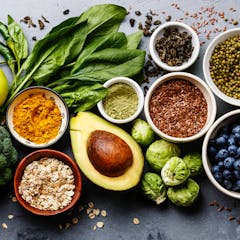
University of Guelph

The University of Guelph is ranked as one of Canada’s top comprehensive universities because of our commitment to student learning and innovative research. We are dedicated to cultivating the essentials for our quality of life - water, food, environment, animal and human health, community, commerce, culture and learning. The University community also shares a profound sense of social responsibility, an obligation to address global issues and a concern for international development.
Links
Displaying 141 - 160 of 444 articles

Ontario’s proposed Food Literacy Act for Students, a first in Canada, would mean students in grades 1-12 have opportunities to grow food and prepare food and learn about local foods.

Exploring the history of quarantine hotels reveals ambivalences and inequities that continue to fuel debates over their effectiveness in the era of COVID-19.

Des entreprises qui se classent bien sur certaines listes évaluant les critères environnementaux, sociaux et de gouvernance (ESG), arrivent en bas d’autres listes. À quels classements se fier ?

The ongoing coronavirus pandemic has further destabilized global food chains supplies. Technological innovations like blockchain can help address these challenges.

Some companies rank high on some lists that measure environmental, social and governance (ESG) initiatives, and rank near the bottom on other lists. Which rankings should we trust?

Les archives publiques sont précieuses pour comprendre comment se crée la mémoire collective. Si l’on ne prête pas attention aux voix et aux expériences autochtones, le regard colonial perdurera.

The destruction of IAP residential school records and media reports that continually emphasize compensation will ensure that if remembered, the process will be remembered through a colonial gaze.

College basketball has long favored men over women athletes, history shows. The disparities that surfaced during March Madness are the latest example.

Cleaner fish feed on the parasites that live on other fish. Studying communication between cleaner fish and their clients may help employ them in salmon farms, which can be plagued by parasites.

Water and climate issues are expected to cause more than one billion people to migrate by 2050.

Les mesures de prévention de la Covid empêchent le système immunitaire des enfants de se développer correctement. Ils pourraient souffrir davantage d’allergies, d’asthme et de maladies auto-immunes.

COVID-19 prevention measures are at odds with guidelines for healthy development of children’s immune systems. The result may be a cluster of youth with more allergies, asthma and autoimmune disease.

Workers shouldn’t have to choose between working while sick and supporting themselves and their families. Post-pandemic, we must learn from our mistakes and take permanent action on paid sick days.

Une récente controverse sur la consistance du beurre démontre le besoin de preuves plutôt que de données anecdotiques.

A recent controversy over the consistency of butter reflects the need for evidence rather than anecdotal data.

La production alimentaire locale tout au long de l’année est à notre portée et réduira l’impact de l’agriculture sur le climat – mais seulement si nous adoptons la technologie agricole.

Regional and inter-provincial travel have contributed to the spread of COVID-19 in small and rural communities. Restricting people’s movement is more challenging than it seems on the surface.

Year round local food production is within our grasp, and will slash agriculture’s climate impact — but only if we embrace agricultural technology.

In Canada, watersheds are vast and often inaccessible, making it difficult to monitor the health of these ecosystems. A new tool helps communities collect data to assess the state of Canada’s rivers.

Food safety agencies have assessed the risk of acquiring COVID-19 from contaminated food or food packaging. They found that currently, there’s no evidence that the virus is a food safety risk.
